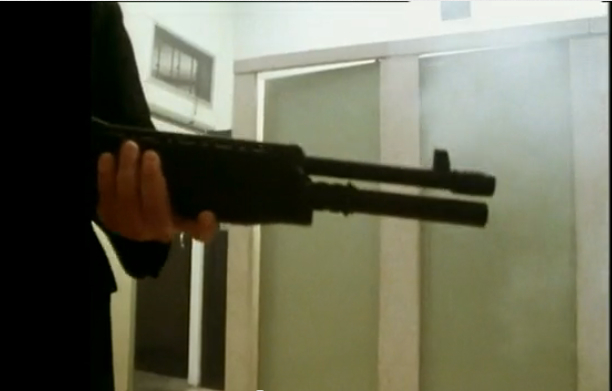Today I’ve been watching some of Alan Clarke’s amazing films about Northern Ireland. Elephant (1989) is a classic. So much so, that Gus Van Sant lifted the title and some aspects of the cinematography for his 2003 film about a high school massacre.
Alan Clarke’s original is a very different, more challenging film. I can’t think of any other film that is ostensibly a traditional narrative drama that has no protagonist, no story and no resolution. Its portrayal of the grim calculus of violence is what has made it famous. But I’m drawn back to it by its formal bravery. In developing a new work for Film 4 we are thinking about how to combine the participatory works of recent years (especially A Machine To See With) with a film.
As our work became more interactive and particularly once we began to make games, we realised that the relationships engendered within a work can be as freighted with meaning as the ostensible themes. Can You See Me Now?’s staging of a multitude of forms of distance and proximity through its game of “It”, through its mixed reality and through its globally scattered online participants was the first work where we deeply explored that possibility. The emotional response you have while playing springs from the excitement and estrangement conjured through those intersecting, dynamic levels of intimacy and separation.
Ulrike And Eamon Compliant is an example of a more recent work where that exploration of relationships within the form is married to an explicitly political question about our willingness or obligation to take action to defend our beliefs. But it is still a long way from there to create a work in which members of the public are participating that might also be filmed in such a way that others would want to watch it. Which is where Elephant comes in.
http://www.youtube.com/watch?v=0cwvGeYjLjI&feature=relmfu
This seems to offer a possible route forwards in terms of structure. I find it a transfixing work; a distillation of the tropes from thrillers into the service of social realism. Alan Clarke is a director where every shot calls attention to itself as a decision manifested: this is what you what are you looking at, now watch. There’s a depth of thought and decision making that compels me. Although Contact (1985) is a more conventional structure it has the same intensity of focus.
And both films hum with the intermingling of fact and fiction. There is a constant tension between the artifice of the cinematic process (seen in the steadicam shots in Elephant) and the stripped, economy of the events portrayed. After the initial excitement of reality television – the first UK series of Big Brother was experimental and exploratory in a way that is now often forgotten – there has been a tendency to assume that the genre is bankrupt. I believe there is an exciting space out there that has not been explored fully.
At the moment, I’m really excited about the possibility of working with a film maker whose work I deeply respect. Fingers crossed that he sees the excitement offered by this idea in the same way.
